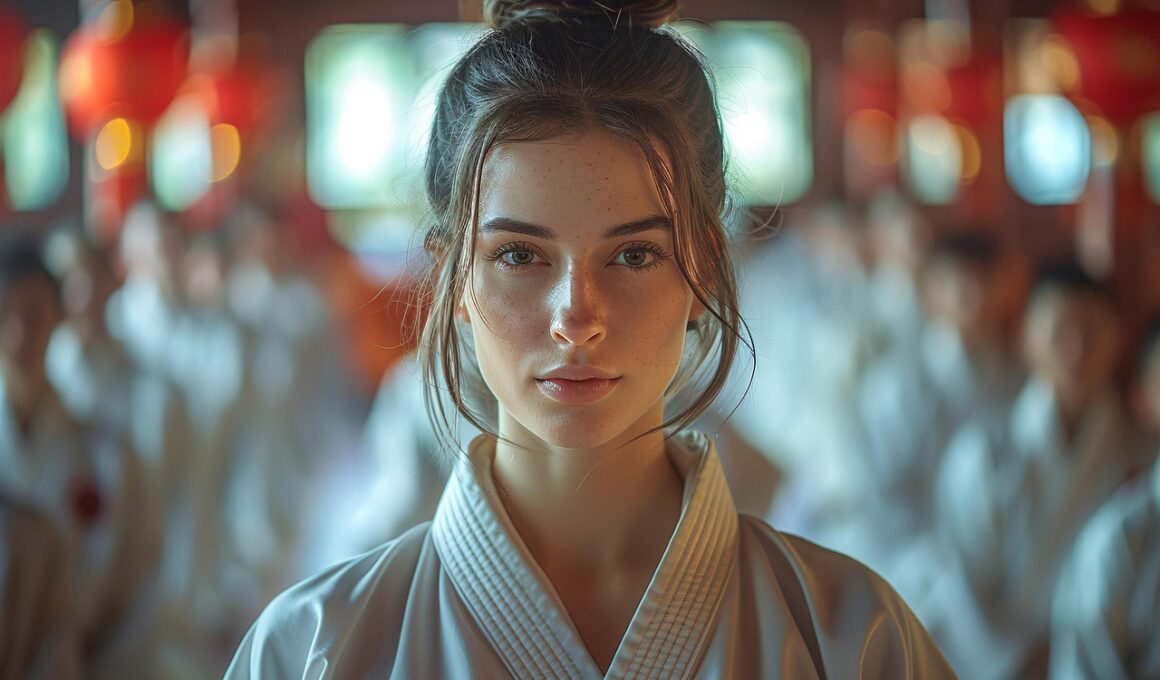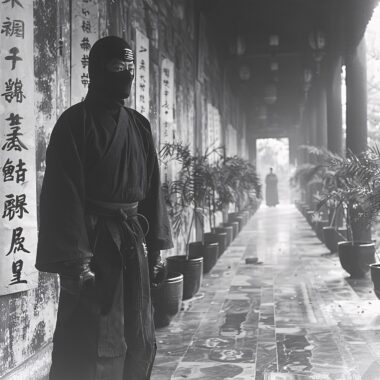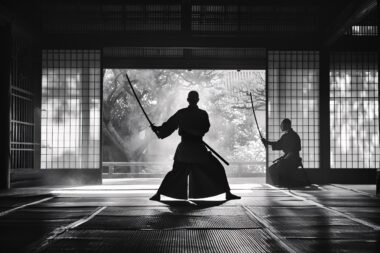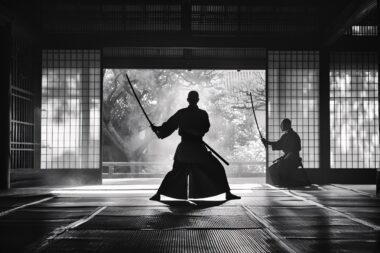Traditional Martial Arts as a Form of Holistic Wellness
Traditional martial arts encompass various styles that not only teach self-defense but also promote physical health and mental well-being. These practices originated centuries ago, focusing on the development of discipline, respect, and inner peace. Students engage in rigorous training routines, which enhance cardiovascular health and improve flexibility. The meditative aspects inherent in traditional martial arts help practitioners develop mindfulness and focus, creating a perfect balance between body and mind. In addition to physical movements, practitioners often learn about etiquette, philosophy, and cultural values associated with each martial art. This holistic approach allows individuals to cultivate a strong sense of self-awareness and personal growth as they embark on their journey in martial arts. Over time, practitioners often report increased confidence and reduced stress levels, illustrating the mental benefits gained from regular training. Furthermore, traditional martial arts provide essential skills for self-defense, making them practical for everyday life. Overall, engaging in these practices fosters a more profound connection to oneself and the world at large and can significantly impact one’s overall quality of life through regular participation.
Traditionally practiced forms such as Karate, Taekwondo, and Judo have evolved throughout history, contributing to their rich heritage. These martial arts not only focus on physical self-defense techniques but also emphasize core principles like honor, respect, and humility. By adhering to these values, practitioners develop a strong moral compass, promoting harmony within their communities. The training often includes various drills that sharpen physical skills, coordination, and agility. Through consistent practice, students can experience improvements in muscle strength and endurance, making their bodies more resilient to everyday stresses and challenges. Mental resilience is another significant benefit, as martial arts training often requires facing fears and overcoming obstacles, translating into confidence both on and off the mat. This psychological aspect can help individuals cope with stress and anxiety in daily life. Physical engagement through martial arts has been linked to the release of endorphins, contributing to improved mood and emotional health. Many schools and dojos also emphasize community involvement, creating a support network that nurtures personal relationships among students.
The Role of Mindfulness in Martial Arts
Mindfulness plays a vital role in traditional martial arts practices, acting as a bridge between physical motion and mental clarity. As students learn various techniques and forms, they become increasingly aware of their body movements and breathing. The focus required during practice promotes a meditative state, allowing participants to engage in self-reflection. By concentrating on their techniques, students develop a deeper understanding of their body’s limits and capabilities. This awareness extends beyond the physical, encouraging mental growth and emotional control. Many martial arts schools incorporate meditation into their training sessions, teaching students techniques to calm their minds and regain focus. This practice can be particularly beneficial for individuals who struggle with anxiety, depression, or stress-related conditions. As students embrace mindfulness through martial arts, they often discover a newfound patience and resilience that serves them well in various life aspects. Furthermore, being present in the moment can improve performance levels during training and competitions, boosting overall satisfaction with the learning experience. Mindfulness ultimately contributes to holistic wellness, making martial arts a comprehensive path to personal development.
Another critical aspect of traditional martial arts is the community it builds among practitioners. When individuals join a martial arts school, they often become part of a supportive family where camaraderie and mutual goals are fostered. This environment encourages personal growth, as students actively work together to achieve milestones and overcome challenges. The bonds that form through shared experiences can lead to lasting friendships and a strong support network outside the training environment. Furthermore, the sense of belonging cultivated in martial arts classes can greatly improve emotional well-being. Practitioners often find that being part of a community provides them with emotional support, motivation, and encouragement. Additionally, group classes offer opportunities for social interaction, helping individuals expand their social circles and develop interpersonal skills. Engaging in traditional martial arts can positively impact mental health by reducing feelings of loneliness and promoting inclusivity. The teamwork aspect emphasizes respect for one another, teaching students the value of cooperation and collaboration. These community-oriented principles create a nurturing atmosphere where individuals can become their best selves while fostering a sense of unity among practitioners.
Physical Benefits of Traditional Martial Arts
Engaging in traditional martial arts provides numerous physical benefits that contribute to an overall healthier lifestyle. The diverse training techniques employed in each style focus on strength, flexibility, and endurance, helping students develop well-rounded physical fitness. Regular practice can significantly improve cardiovascular health, as aerobic exercises are often integrated into training sessions. Strength-building exercises are also prevalent, enhancing muscle tone and boosting metabolism over time. Flexibility training is crucial in various martial arts forms since it helps prevent injuries and promotes overall mobility. Furthermore, martial arts training includes balance and coordination exercises, which contribute to better body awareness and stability in daily activities. These physical improvements can lead to a more active lifestyle, encouraging students to participate in other sports or physical activities. As martial arts practitioners continue their training, they can also experience increased energy levels and reduced fatigue. This boost in vitality often translates into improved performance in everyday tasks and responsibilities, leading to an overall enhancement in the quality of life. By committing to traditional martial arts, individuals can establish a solid foundation for a healthy and active lifestyle.
The mental resilience gained through traditional martial arts training has a profound impact on stress management and emotional regulation. Many practitioners find relief from daily stressors, as martial arts provide a productive outlet for frustration and tension. Physical activity, combined with mindfulness techniques, reduces the levels of stress hormones, resulting in improved emotional well-being. As individuals learn to overcome challenges in their martial arts practice, they become more adept at handling challenges in life. Encountering and overcoming failures in training fosters a growth mindset, encouraging students to view setbacks as opportunities for learning. Additionally, traditional martial arts instill discipline and focus, which are essential traits for managing stress effectively. Practitioners often develop strategies for remaining calm under pressure, which can serve them well in challenging situations outside the dojo. The personal empowerment gained through martial arts training translates into increased self-esteem, allowing individuals to approach life with confidence. Overall, these skills acquired through martial arts not only improve physical fitness and well-being but also cultivate a healthier mindset, making practitioners better equipped to navigate life's ups and downs.
Conclusion: Embracing Traditional Martial Arts for Well-Being
In conclusion, traditional martial arts serve as a comprehensive means of achieving holistic wellness, combining physical, mental, and emotional benefits. The fusion of rigorous training routines, mindfulness practices, and community engagement allows individuals to develop a balanced approach to personal growth. By fostering discipline, respect, and resilience, martial arts practitioners experience transformation that extends beyond the dojo into everyday life. The mental clarity gained from these practices empowers students to manage stress and contribute positively to their communities. Furthermore, the physical health benefits associated with martial arts inspire practitioners to maintain active lifestyles, enhancing overall well-being. Engaging in traditional martial arts can create lasting friendships and support networks that significantly improve emotional health. As individuals embark on their martial arts journey, they discover the potential for significant growth, ultimately leading to greater quality of life. The benefits identified throughout this article showcase the value of traditional martial arts as a transformative practice. Now is the time to explore the diverse styles available and embrace the holistic wellness that comes with committing to this enriching journey.
Advancing in martial arts requires dedication and continuous efforts, making it essential for practitioners to set personal goals. As the journey unfolds, they can further deep enrichment while enjoying the numerous benefits, embracing personal development through traditional martial arts.





